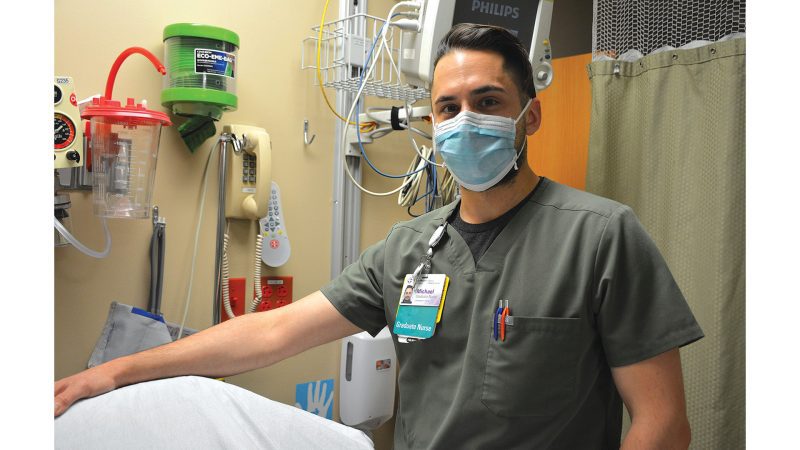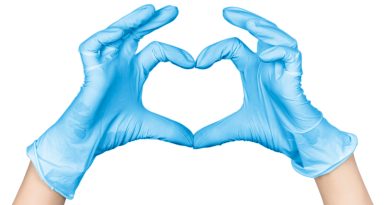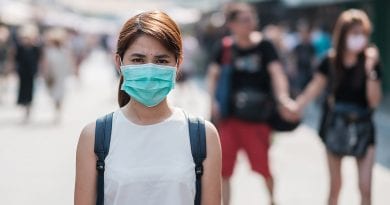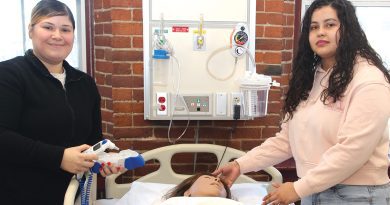For Students, and Nursing Schools, COVID Has Brought Some Stern Tests
Reality Check
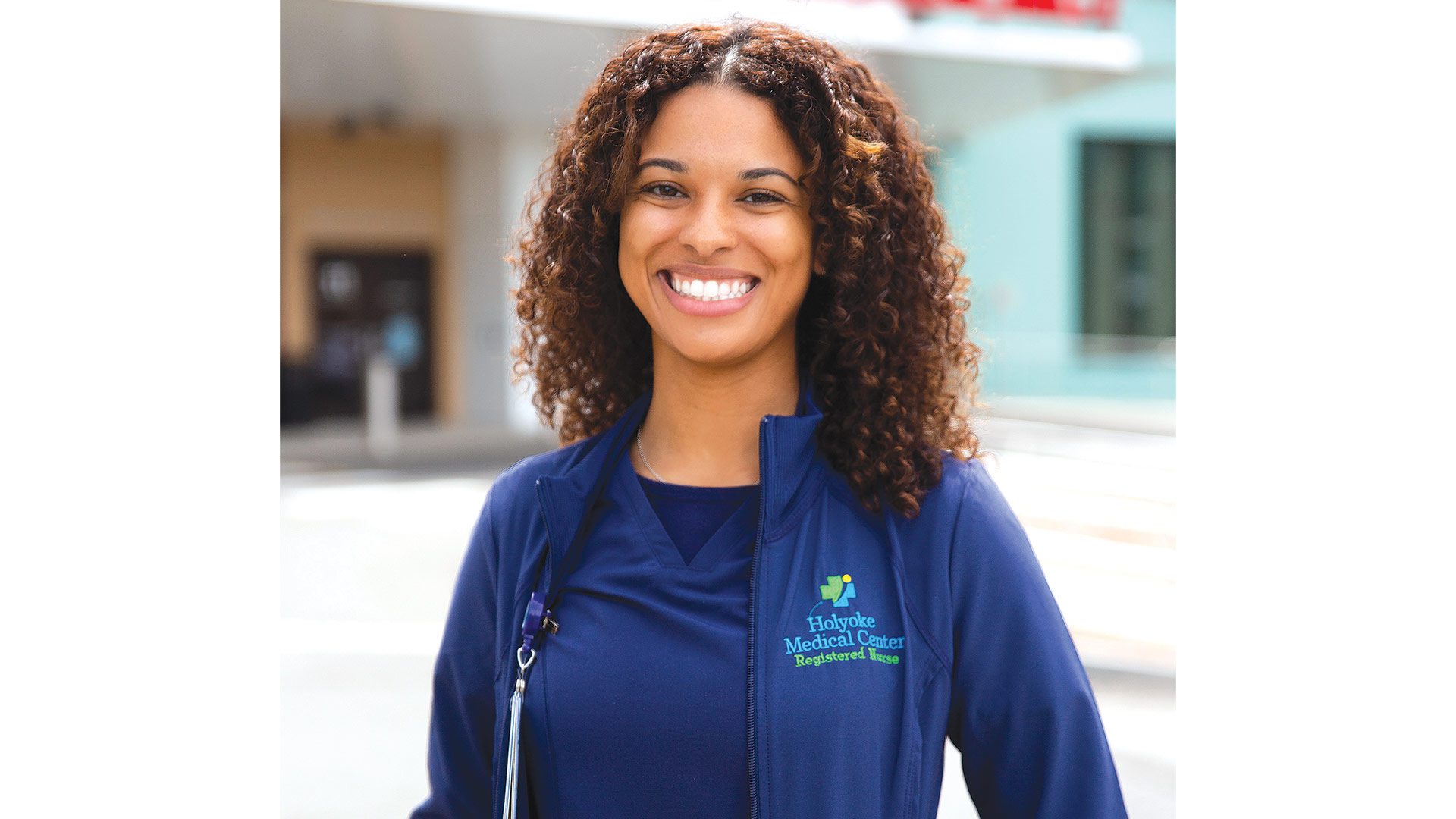
Veronica Machuca remembers the letter she received from Holyoke Community College just a few weeks before she was scheduled to start in the Nursing program in September 2020.
She didn’t have it in front of her when she spoke to HCN, but she didn’t need it; she couldn’t recall the exact wording but won’t ever forget the gist of the missive.
“It said, ‘we are aware of the pandemic; it’s going to come with its challenges, and we are going to be remote. If this is something that’s going to be an issue for you, you might want to reconsider and basically withdraw,’” she recalled. “That’s essentially what it said.
“It was scary,” she went on, noting that after seven years of working in a reference lab handling phlebotomy, she had decided she wanted something else, something with more direct patient care.
And now, COVID was potentially standing in the way of the kind of learning experience she wanted and knew she needed. And she admitted to thinking about withdrawing and putting her plans on ice.
But something told her to push on, and the sentiments she expressed about her thought process speak volumes about this intriguing crack in time, others who persevered, and those who choose this profession in general.
“It made me think … ‘if I can’t go through this program during the pandemic, then I don’t belong in this field; even in the worst times, you need to be available.”
“I actually weighed the pros and cons of going into this program during the pandemic with things being so restrictive,” she said, adding that talks with her advisors and faculty members convinced her to press on.
“They had a really positive attitude about it, and they basically reminded me that, despite the pandemic, people were still getting sick, and if anything, they were getting sicker, and there was a shortage and we needed new nurses, and more people would be leaving the field because of this,” she went on. “It made me think … ‘if I can’t go through this program during the pandemic, then I don’t belong in this field; even in the worst times, you need to be available.”
So, she stuck it out, and her perseverance has certainly been rewarded. Indeed, while nursing graduates have been in demand the past several years, Machuca said she had multiple offers to weigh before ultimately deciding on Holyoke Medical Center, where she is now working the 7 p.m. to 7 a.m. shift in the emergency department.
So, while the pandemic spawned myriad challenges for nursing students, she noted, it ultimately created opportunities and learning experiences on myriad levels.
Michael Konderwicz, a recent graduate of the BSN program at American International College (AIC), said essentially the same thing.
He was able to transition into a graduate-nurse role at Mercy Medical Center, where he is now working in the emergency department. He told HCN that because of COVID, he and others like him were able to work under the license of a willing nurse one day a week to “get your feet wet while you’re still in school,” as he put it, and apply many of the things he was learning in school to what he was doing at work.
It was invaluable experience, he said, one that is accelerating the traditional orientation process at Mercy and should help him more quickly transition into his role after (hopefully) passing the nurse licensing exam, known as the NCLEX.
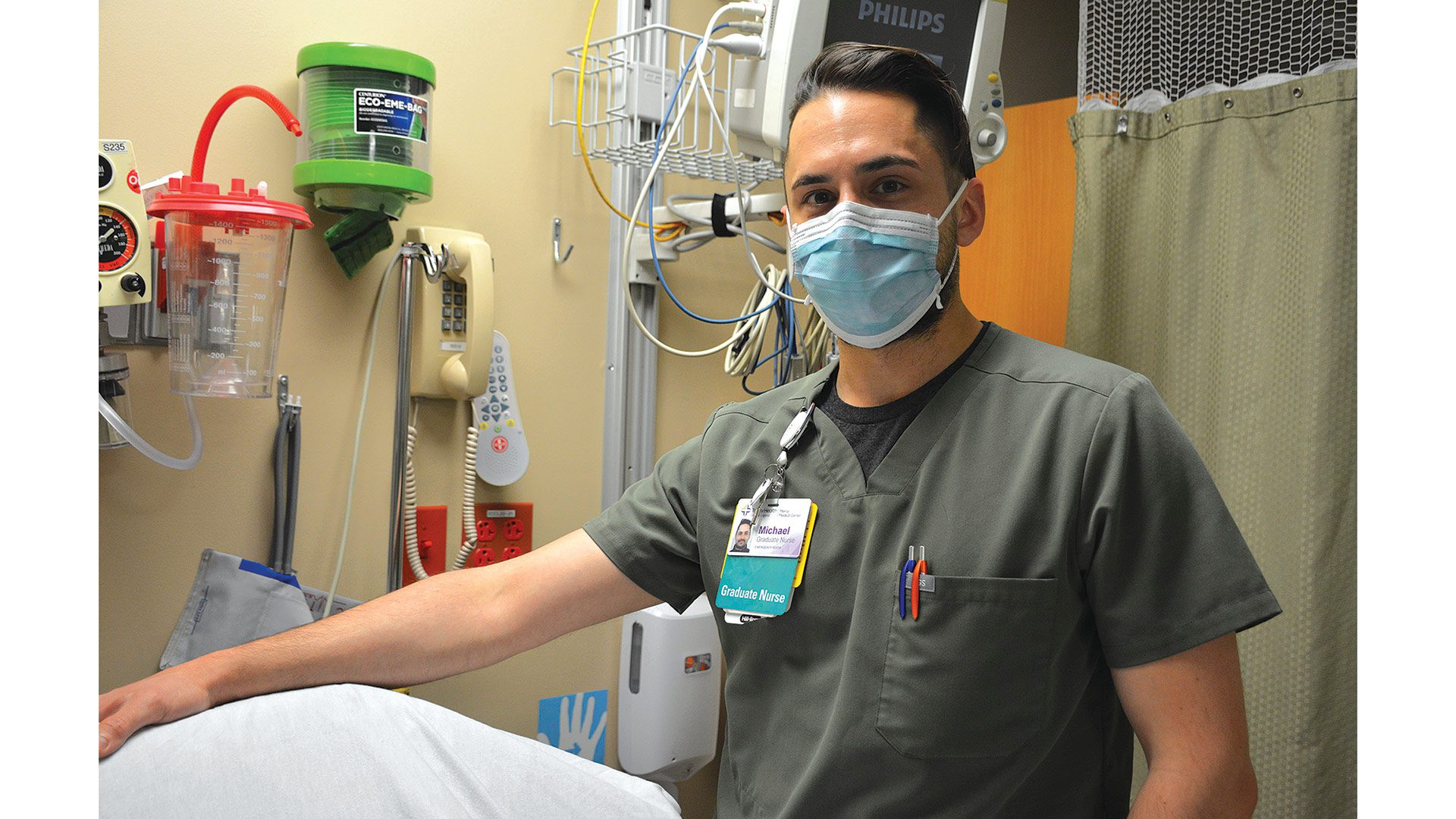
Overall, he said the past four years, and especially the past two during COVID, have been a test, one that has enabled him to learn about himself, the profession, and much more.
“In all of its harshness, COVID was kind of a blessing in some respects,” he said. “Because it gave me at least — I can’t speak for anyone else — a good reality check as to what this business is and what we’re getting into rather than being in the business for so long and then having it be rough. I said, ‘I’m going to commit to this and stay with it.’”
As for those administering college nursing programs, it has been a time of challenge and opportunity for them as well. The challenges are obvious; they had to re-invent how they taught nursing early in the pandemic and adjust to a landscape that was changing quickly and profoundly. And then, they had to change back, which was not as easy as it might sound.
“In all of its harshness, COVID was kind of a blessing in some respects. Because it gave me at least — I can’t speak for anyone else — a good reality check as to what this business is and what we’re getting into rather than being in the business for so long and then having it be rough.”
In doing so, said Karen Rousseau, dean of Health Sciences at AIC, administrators and faculty members learned some valuable lessons about their own resilience and ability to respond to adversity. And they also learned some different, and in some cases better, ways of doing things, especially when it comes to remote learning and providing nursing students, many of whom are juggling school, jobs, family, and more, with much-needed levels of flexibility.
“We incorporated some new kinds of virtual learning platforms that, at the time, were helping us build a type of clinical experience for students,” she noted. “But now, we’ll use them to augment and add to clinical experiences and enrich those experiences. So, there were lessons learned that will come away as beneficial.”
For this Salute to Nurses, HCN talks with recent graduates and nursing program administrators about what the past few years have been like, and how they will shape things moving forward.
Learning Experiences
As he talked about his four years in nursing school, Konderwicz said it was an intriguing time, to be sure, one marked by transitions — in the plural. And it was a time when ‘normal’ was both a moving target and a relative term.
“It was actually more strange to go back into the classroom after this whole thing had happened than it was to be online,” he explained. “I think everyone really got used to it (online), and the school very graciously accommodated all of us, along with all of their partnerships, either with the state of licensure or the local government; even though we were online and even though we weren’t getting a traditional education, we were still able to do clinicals. And even though most of it was virtual, we still got credit for it.
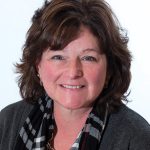
“Most of them looked on it as a challenge and said, essentially, ‘I want to go help — this is why I wanted to be a nurse, to work in those areas where people are acutely ill.”
“What they could have done is just put a kibosh to it and say ‘sorry, you’re not going to get that experience and clinical education,’” he went on. “But they kept going because they wanted to really get nurses out there and have us ready.”
With that, Konderwicz effectively summed up what the past few years has been like for all those involved in nursing education, be it students, nursing school administrators and educators, and the hospitals providing clinical experience.
The goal was to push through the crisis that was and is COVID, provide learning experiences both in-person (to the extent possible) and online, and keep a flow of nurse graduates moving through a pipeline and into a market where they would be desperately needed (see related story, page 18).
Summing up that time, Konderwicz said it was a learning experience on many levels and, in some ways, a rewarding test of his mettle because of the changes and the adversity.
“There were advantages and disadvantages to working remotely,” he said, adding that becoming a nurse was “in the plans,” as he put it, and something he wanted to pursue at 30 rather than 40. But COVID certainly wasn’t in the plan, and, looking back, he said he was able to make the best of it, if that’s the right phrase, and get that reality check, which came in several forms, from contracting COVID to getting a hard look at what the nursing profession is like under the most demanding of circumstances.
All nursing students experienced a similar reality check, said Rousseau, noting that as students saw nurses retire or step away from the profession due to the stress, strain, and, yes, dangers of COVID, some were asking themselves if this was what they really wanted to do.
Most all of them, though, answered in the affirmative.
“Most of them looked on it as a challenge and said, essentially, ‘I want to go help — this is why I wanted to be a nurse, to work in those areas where people are acutely ill,’” she said, adding that the overall experience, and the opportunities it provided for some to be on or near the front lines of the pandemic, will serve them well in their careers.
Course of Action
As noted earlier, those who stuck with it during COVID and persevered through its many challenges are being rewarded with a job market that is in some ways without precedence.
Indeed, healthcare facilities of all kinds are looking for nurses, wages have moved progressively higher, generous sign-on bonuses have become the norm, and providers are taking steps to try to accommodate nurses (and other healthcare professionals) and reduce levels of stress.
“It’s not just hospitals — everyone is looking for nurses,” said Rousseau. “Schools, long-term care facilities, homecare … there’s just a huge need for nurses right now. Hospitals are paying higher rates of pay because they need to staff, which means that nurses in some of those other areas are moving into the hospitals because of the pay, which leaves vacancies in those other settings. It’s a challenging environment for employers.”
Amy Brandt, dean of Health Sciences and Culinary Arts at Holyoke Community College, agreed, noting that most graduates of the school’s associates degree program had multiple job offers and positions lined up long before their nurse-pinning ceremony, and some found it in the emerging field of travel nursing.
As the name suggests, these are nurses who travel from one assignment to the next as need dictates, often at wage rates higher than they could find if they settled on one place of employment.
“Overall, the field has become very broad,” she said. “And everyone is hiring; most of the hospitals across the country are short-staffed — we just haven’t been able to produce enough nursing graduates in the volume that is needed to meet current demand in the hospital setting as well as the outpatient setting.”
Machuca told HCN that she had multiple job offers to consider as she was wrapping up her studies, and eventually chose HMC because of the opportunity it presented to “be involved in a hospital that is very much involved with the community.”
As for the colleges with nursing programs, COVID presented learning opportunities and reality checks for them as well.
“We did have some good lessons learned through this,” said Rousseau. “When we did come back to campus, and we did in that fall of 2020, most classes were still held remotely, but the nursing courses — anything that had to do with practical learning skills, the learning-lab skills — we did those face-to-face but broke the class up into very small groups so we could keep social distancing.
“And while that was a huge amount of work for the faculty, because splitting that many people up meant running the same class over and over and over again, it really facilitated learning for the students,” she went on. “So, we’re looking for ways to continue working in small groups when we’re doing those kinds of learning activities.”
Overall, the many challenges presented by COVID offered up a stern test, said Rousseau, and in passing it, there was a strong sense of accomplishment.
“Flexibility has been key, and nurses have always been flexible,” she told HCN. “But I don’t think the faculty realized how flexible they truly could be. They ran tutoring sessions and drop-in sessions at different hours of the night because we were able to use zoom links — that provided flexibility. There are many of these pieces that we’re trying to incorporate moving forward to support student success.”
Brandt agreed, noting that the biggest change brought about by COVID is in “instructional technology.”
“Instead of having only in-person lectures, we need to figure out how to be more flexible in how we deliver that lecture,” she explained. “Students want more flexibility, and to be honest, they need more flexibility, because you don’t see any students any more that are coming in with no responsibilities, that are fully supported by a two-parent household.
“A lot of our students are what we call non-traditional — they’re working moms and dads; they’re supporting an elderly member in their family … all different kinds of combinations,” she went on. “And nursing school is very demanding on your time; I think students appreciate, wherever possible, to have some of the instruction be online.”
The Bottom Line
As she talked about her job in the HMC emergency department, which she started a week after getting her nurse’s pin, Machuca said she loved the pace of the work and that every day, almost every hour, is different.
Still, there was a period of adjustment.
“My first few days … I was questioning everything. I was like, ‘what am I getting myself into — this is super overwhelming,” she recalled. “But it was just me going through a big change; I had been doing the same job for almost 10 years. I went from handling patients’ specimens to dealing directly with them. I feel like I should have been doing this sooner.”
Those sentiments are typical of most nursing graduates, even in a time that has been decidedly atypical.
This has been a time of change, of challenge, opportunity, and adjusting. Mostly, it’s been, as Konderwicz said, a reality check — in all ways, and for everyone involved.

